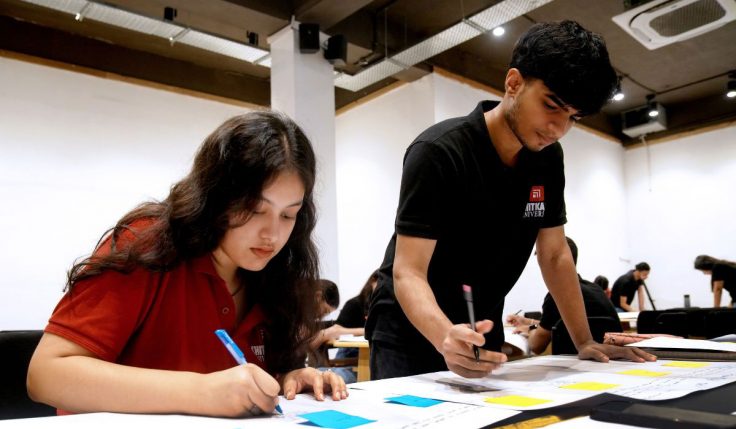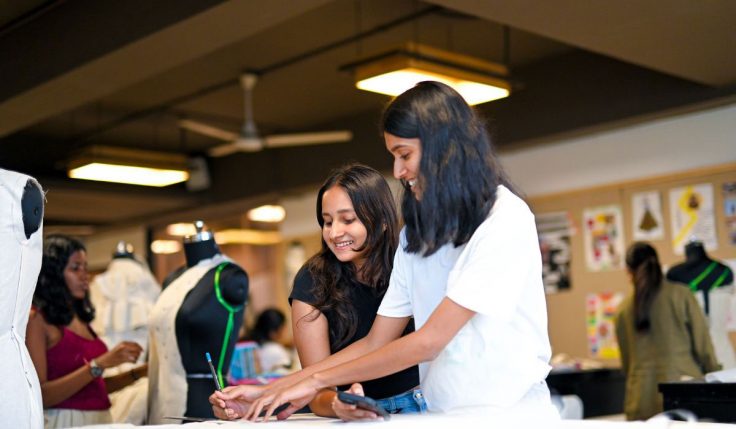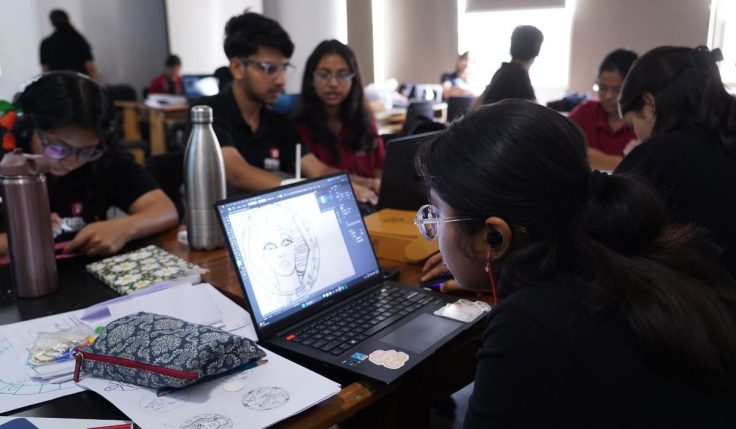Fashion has been a lot more than just clothes designed to be worn. It is one of the most profound forms of self-expression, a means to convey our personality, and when understood intricately, it can also impact our mental health.
When we study the relationship between fashion and emotional well-being, it is a complex and many times an interesting one. There is an evident psychological impact of clothing choice on how fashion contributes to self-expression and confidence.
In this blog, we will study the impact of clothing on mental well-being in complete detail.
What is Fashion Psychology?
Fashion Psychology is a branch of applied Psychology that uses psychological theories and principles for understanding and explaining the relationship between fashion and human behavior just as how fashion affects emotions, self-esteem, and identity. This branch also examines how fashion choices can be influenced by factors such as culture, social norms, individual differences, and values.
Fashion Psychologists may use their knowledge and skills to advise individuals, organizations, and the fashion industry on many issues including consumer behavior, sustainability, marketing strategies, and design. The concept of enclothed cognition proposed by researchers Hajo Adam and Adam D. Galinsky suggests that clothing can influence cognitive processes affecting the way people think and behave.
The subject of fashion Psychology explores an extremely intricate relationship between clothing choice and mental health and well-being while shedding light on how what we wear can influence our emotions, confidence, and overall psychological state. This is a phenomenon that extends beyond surface-level aesthetics of clothing while delving into the realm of self-expression, societal perspectives, and identity.
Clothing serves as a powerful form of non-verbal communication allowing individuals to express their identity and convey social messages. The choices we make in our attires can impact our perception and influence how others understand us. Clothing that aligns with one’s self-image and personal style can contribute to a positive self-concept and boost self-esteem.
Psychology of Fashion and Clothing:
The clothes that we wear can have a profound impact on our confidence, self-esteem, mood, and overall mental well-being. Let’s see how
Self-Expression: Our clothing choices can best be seen as an extension of our personalities. When we choose specific colours, styles, and sometimes even some brands, we send signals about who we are as a person and how we wish to be perceived. For instance, wearing bright colours might express positivity and confidence while lighter colours may express a more relaxed and happy state of mind.
Confidence: Putting on an outfit that makes you feel good can boost your confidence tremendously. When you feel comfortable and happy with what you are wearing, you are more than likely to stand out, exude more confidence, and even go ahead with your day with a positive attitude.
Emotional Connect: Some pieces of clothing also hold sentimental value reminding us of cherished memories or of some loved ones who have been dear to us. Wearing this clothing evokes positive emotions and also acts as a source of comfort during challenging times.
Also Read: Fashion Trend Forecasting: Key Strategies to Stay Ahead in an Ever-changing Industry
Psychological Impact of Colour In Fashion:
The psychological impact of color in fashion is also something that cannot be overlooked. Colours can evoke specific emotions and moods. For example, warm tones such as red and yellow are often associated with energy, while cool tones such as blue and green may convey calmness and tranquility.
Understanding the psychological effects of colours enables individuals to make intentional choices in their wardrobe to support their mental well-being. The fashion industry’s portrayal of beauty standards can significantly influence an individual’s self-esteem and body image.
Clothing Impacts Confidence In Various Situations:
Unrealistic depictions in media can contribute to feeling inadequate and dissatisfied with one’s appearance. The emergence of body-positive movements and diverse representation in fashion for solving these challenges promote inclusivity and foster a more positive body image for individuals of all shapes and sizes.
Clothing can serve as a form of armor for many people while impacting one’s confidence and performance in many situations. The idea of power dressing suggests that wearing clothing associated with authority and competence can influence a person’s behavior. A well-tailored professional suit also contributes to an increased sense of self-assurance and empowerment.
Association Between Physical Comfort in Fashion and Mental Well-Being:
The link between physical comfort in fashion and psychological well-being is pretty profound which creates a symbiotic relationship that transcends beyond material satisfaction. When the clothes are tailored to provide a comfortable fit, people experience a sense of ease that permeates their everyday lives. This physical comfort acts as a foundation that further strengthens mental peace.
The absence of discomfort including tightness or irritation also prevents the need for constant adjustment reducing the likelihood of fidgeting with clothes. As a result, people can direct their mental energy towards a productive and enjoyable pursuit. The point is that an alignment between the body and clothing encourages a positive self-image promoting confidence and self-assurance.
The mental comfort derived from well-fitted clothes extends to social interactions and confidence in appearance translates into confidence in communication influencing interpersonal relationships. The harmony between physical and psychological comfort in fashion creates a stronger sense of well-being enhancing quality of life with a balanced and unencumbered experience in body and mind.
Social Acceptance and Conformity Leads to Mental Well-Being in Fashion:
Social acceptance and conformity play an important role in shaping any individual’s sense of psychological comfort when it comes to fashion. The human inclination to belong to a group often drives people to follow prevailing fashion norms.
While one can adopt the ongoing trends with a free mind, it is also important to wear your style by embracing one’s individuality. Creating a fine balance between conformity and individuality is key which when understood leads to getting remarks on your clothing. This offers a sense of safety and acceptance while fostering a sense of mental comfort in society.
Fashion is a form of self-expression that can easily become a medium through which people navigate social landscapes. The simple desire to fit in and avoid social exclusion prompts people to adopt styles and trends endorsed commonly.
Healing Impact of Fashion:
The healing potential of fashion is evident in the growing field of “fashion therapy.” This is an approach that involves using clothing and personal style as tools for self-discovery, empowerment, and healing.
Working with a Fashion therapist can offer people insights into identity while helping them navigate personal challenges and develop a positive relationship with their self-image. However, it is essential to acknowledge that the impact of clothing on mental well-being is complex and differs from person to person.
Summing It Up:
Fashion Psychology unveils an intricate connection between clothing and mental well-being while also focusing on the profound effects of clothing choices on self-perception, confidence, and emotional states.
If you are also interested in studying the impact of fashion on mental well-being then pursue a program such as a 4-Year Bachelor of Design Fashion Design from Chitkara to know more.
You will learn about the psychological dimensions of fashion and also be able to use the transformative power of clothing to cultivate a positive and empowering relationship with mental well-being.






